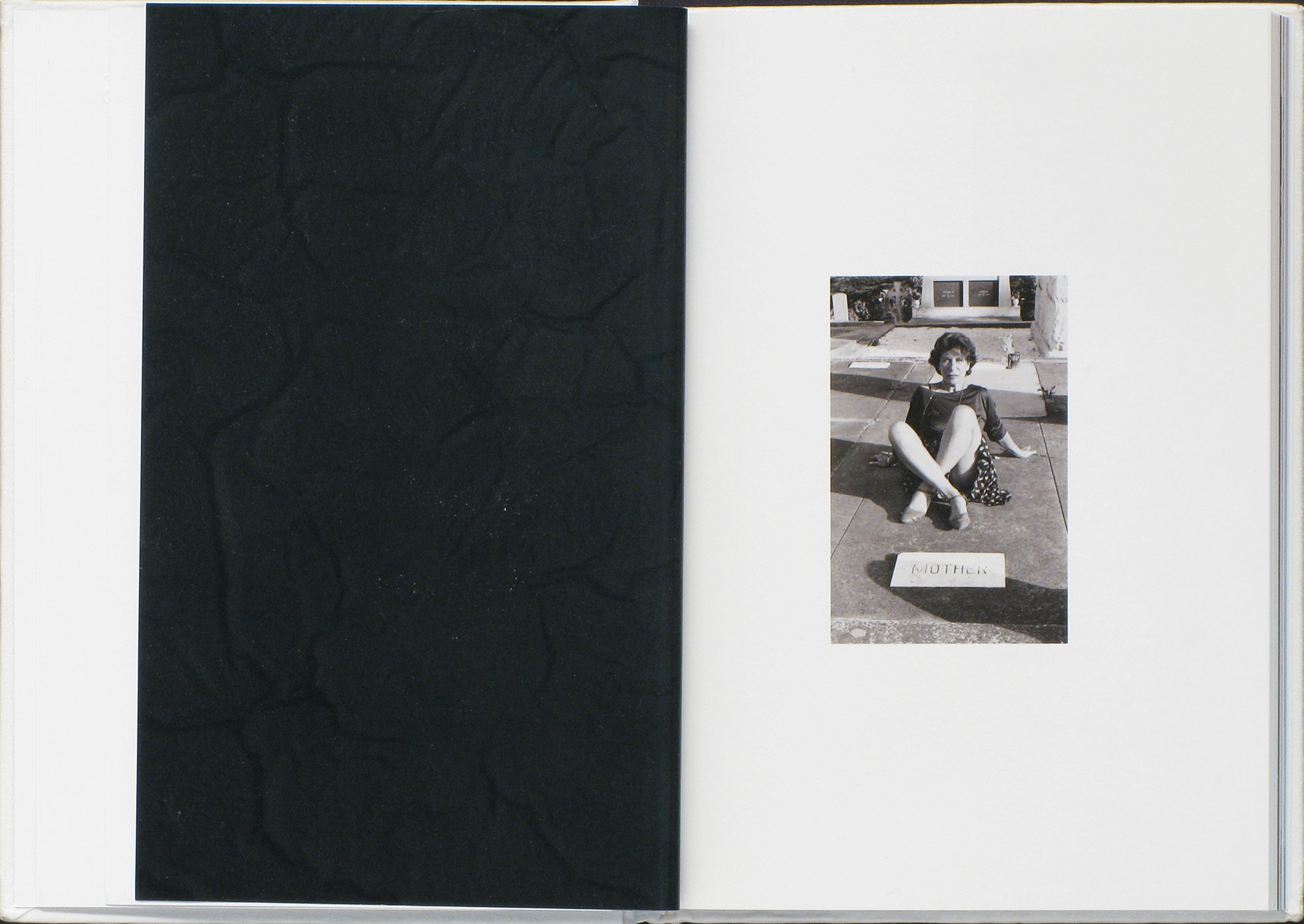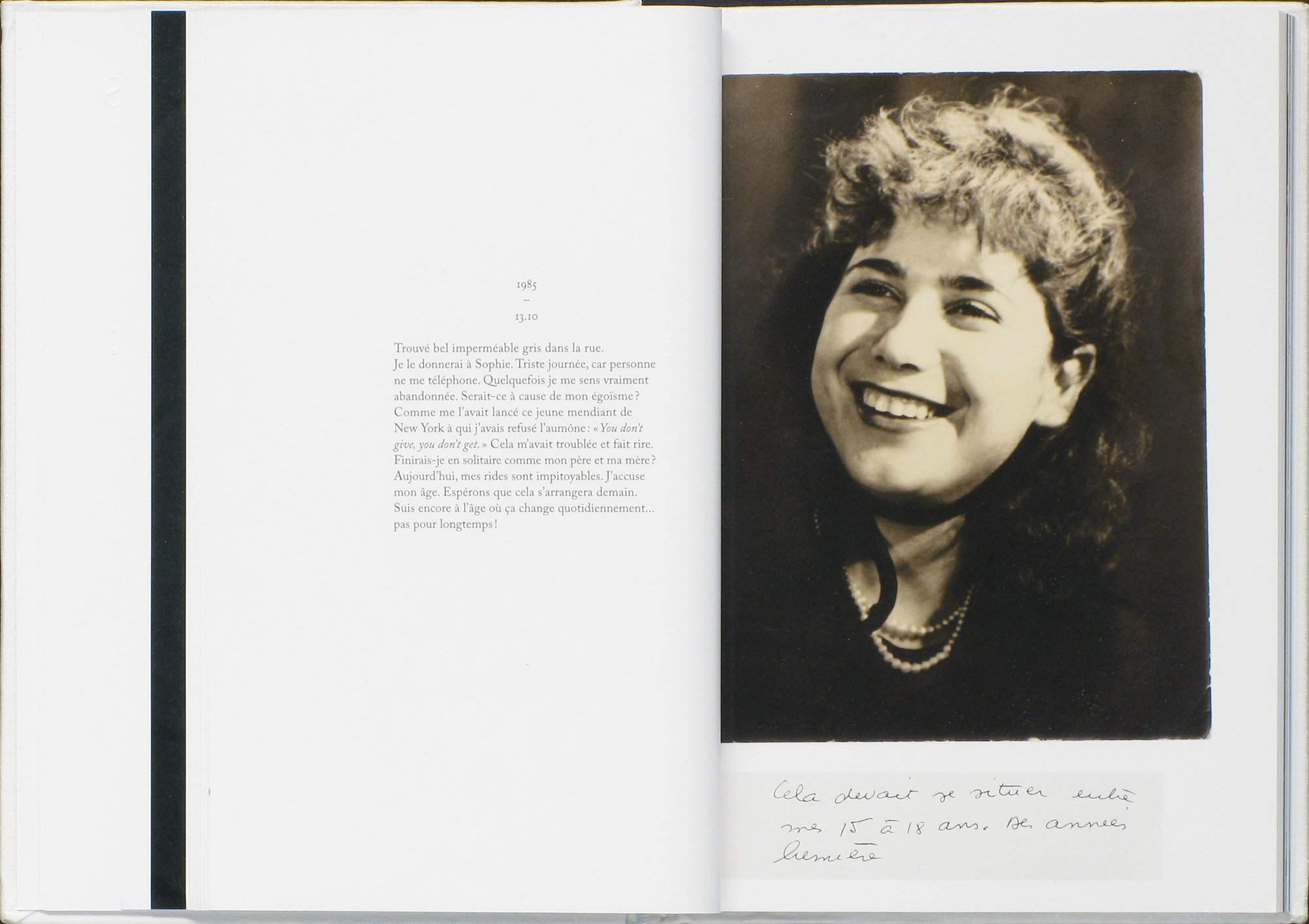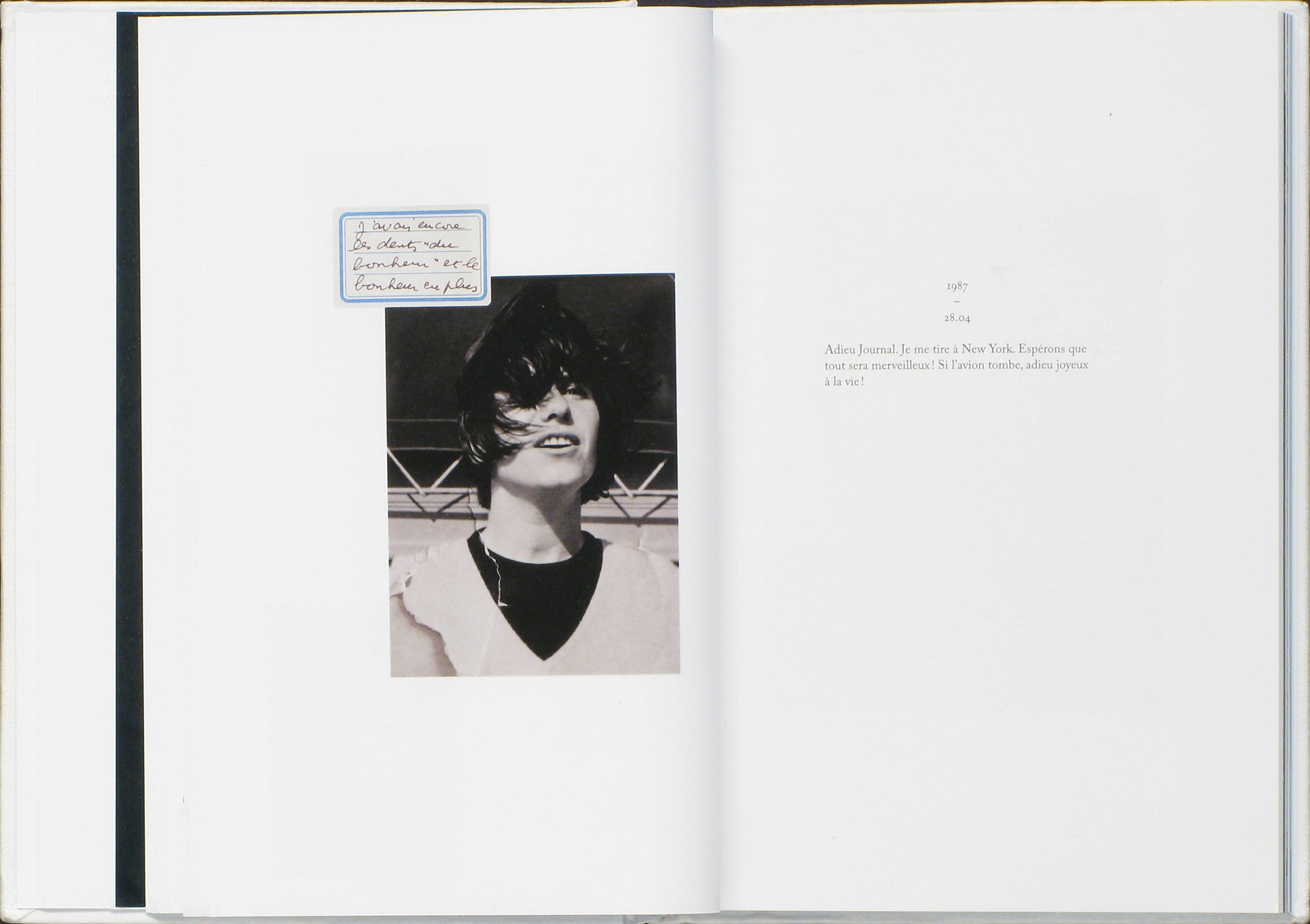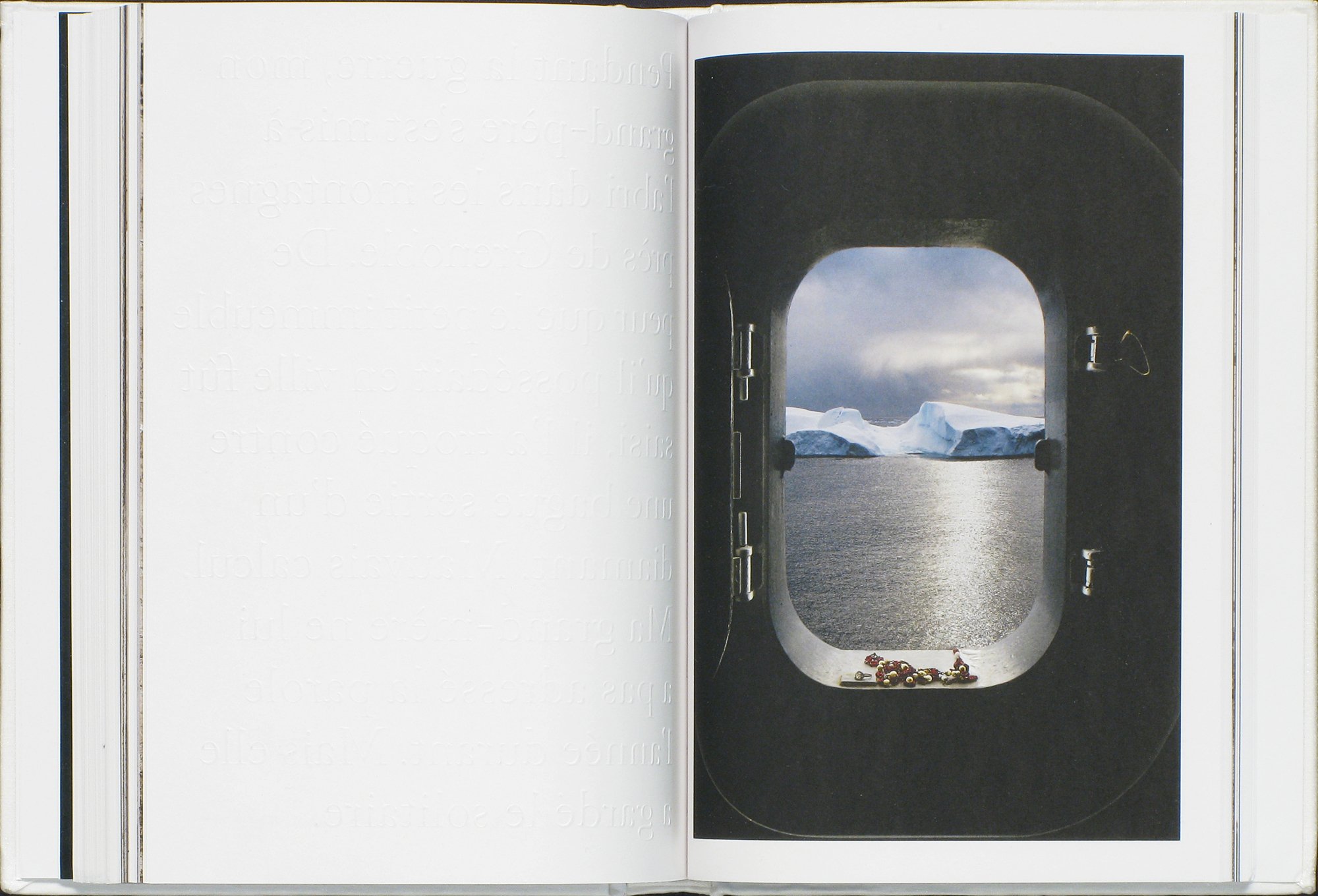On Sophie Calle’s Rachel, Monique
American Suburb X
February 2013
Sophie Calle, Rachel, Monique (Paris: Editions Xavier Barral, 2012). Photographs © Sophie Calle. BookTease™ images © photo-eye
Given her proclivity for documenting and sharing the most intimate of moments – both her own and those of others – it is hardly surprising that Sophie Calle ultimately turned this probing eye on her mother. Rachel, Monique is an exquisite object; referring to it simply as a book seems unfitting. Through this volume, we are introduced to Monique, her life unfolding through snapshots paired with selected text from her extensive collection of journals. They are the kind of pictures you would recognize flipping your own family albums: vacations, babies, candid moments with friends. In fact, the glossy, inset pictures almost fool me into thinking they are real.
We segue from images of a life fully lived to stills of Monique on her deathbed, taken from Calle’s minute-by-minute recording of her passing in 2006; enfin (“at last”) Monique replied when she discovered her daughter filming in the hospital room. Installation photographs from Rachel, Monique – the exhibition presented in the basement of Paris’ Palais de Tokyo in 2010 – demonstrate the breadth of Calle’s practice and investigation, juxtaposing objects, photographs and text in that eerily mausoleum-like space. While meaning may not immediately be apparent to us, each element of this exhibition – and monograph – is linked to particular memories and experiences, whether it be Monique’s final word or Calle’s trip to the Arctic where she laid to rest items prized by her mother in the drifting snow.
The final pages of the book are photographs of grave markers reading “mother;” the last image is a marker reading “daughter.” Amidst an otherwise deeply personal tome, this conclusion has a more universal reach. How do we confront devastating loss? How do we commemorate a life? How will we be remembered?
While Rachel, Monique is a poignant and melancholic meditation, there remains a spark of Calle’s intrinsic humor. The elegantly embroidered text on the cover reads (when translated), “She was successively called Rachel, Monique, Szyndler, Calle, Pagliero, Gonthier, Sindler. My mother liked to be the subject of conversation.” Rachel, Monique suggests that perhaps we should attribute Calle’s acerbic wit and inquisitive spirit to her mother.





